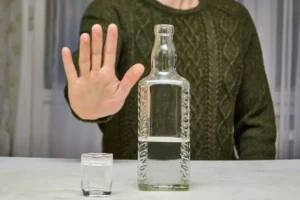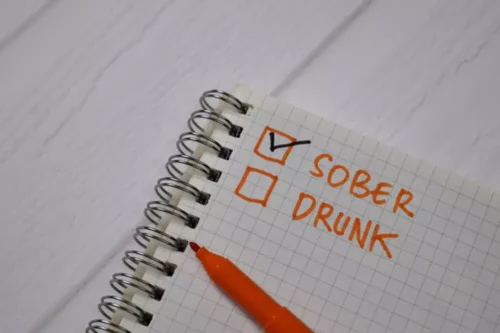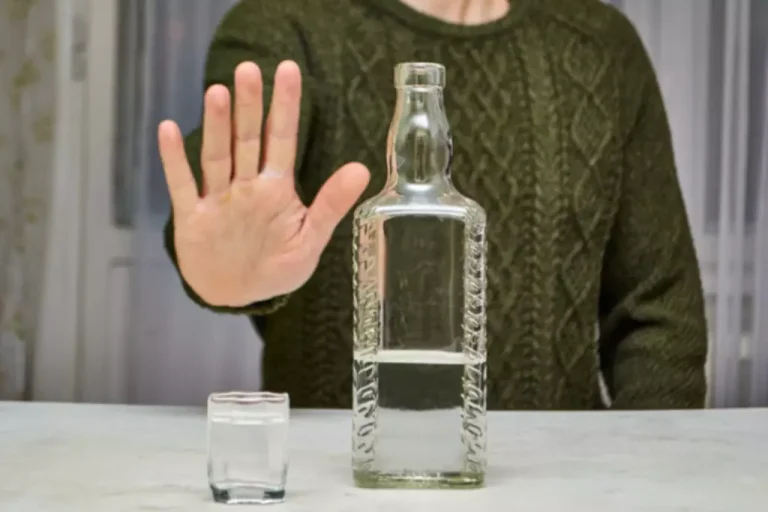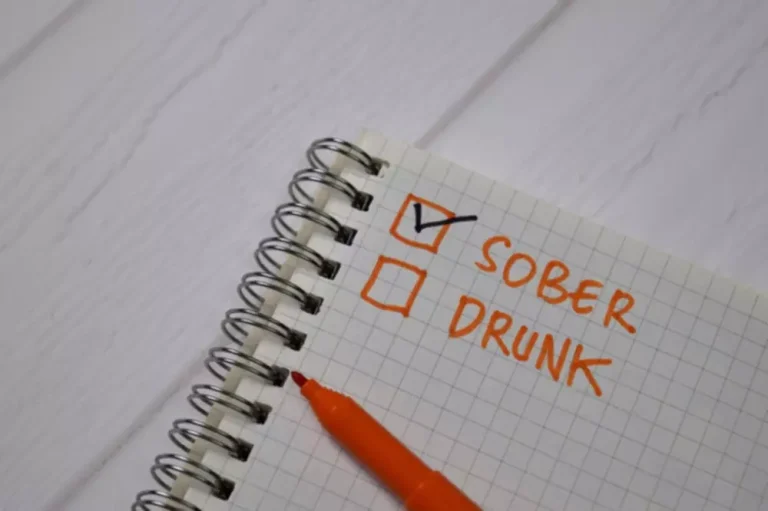Alcohol Withdrawal Syndrome: Benzodiazepines and Beyond

High initial doses may be necessary, https://ecosoberhouse.com/ but treatment should be discontinued within a week. Barbiturates have been shown to be effective in acute severe withdrawal syndrome. • A history of epilepsy prior to alcohol abuse is suggestive of seizures triggered by alcohol abuse instead of alcohol withdrawal seizures and management may vary accordingly. Studies suggest there may be a link between chronic alcohol abuse and epilepsy. Doctors believe repeatedly experiencing alcohol withdrawal may trigger more activity in the brain and increase the likelihood of experiencing a seizure. These seizures can come from injuries, genetic issues, and alcohol withdrawal syndrome.

Donate and enjoy an ad-free experience
Fetal alcohol spectrum disorders are more prevalent than previously recognized and cause a wide range of birth defects and neurodevelopmental disorders (53). There is no current evidence that alcohol-related seizures confer additional maternal or fetal risk, over and above those of alcohol abuse and seizures independently. A pregnancy test should be performed in all women of childbearing age with alcohol withdrawal (79). Pregnant patients should be admitted to the inpatient setting if they require withdrawal management, and an obstetrician should be consulted (79). The CIWA-Ar scale is appropriate for monitoring, and benzodiazepines and barbiturates are the treatment of choice in these patients (79). Prophylactic therapy is recommended in all patients with known or suspected alcoholism, malnutrition, or frequent vomiting.
Alcohol and Seizures
At Northridge Addiction Treatment Center, we focus on your safety during detox and preparing you for life after treatment. We use a holistic approach to help you develop the skills needed for long-term recovery. Many people who write to me each day have been able to quit drinking long before experiencing DTs. I’m confident that the information at your disposal, on Fit Recovery, can help to save your life.

Addiction Treatment Programs

This was significantly less than the amount they typically consumed outside of the hospital. Research my colleagues and I conducted revealed that patients prescribed alcohol were less likely to require unplanned hospital admissions for alcohol withdrawal. And they had fewer seizures after starting therapy compared with those treated with benzodiazepines. This was significantly less than the amount they typically consumed outside of hospital.
- Although seizures occur in the context of alcohol withdrawal, frequently other signs of alcohol withdrawal syndrome are not present because they develop gradually (27).
- It is recommended to rule out structural causes of seizures in patients with a first seizure, status epilepticus, or in patients where head trauma is suspected (27).
- Patients with moderate or severe alcohol withdrawal, medical complications and multiple failed attempts at abstinence may need close monitoring, in indoor setting.

Cocaine and stimulant use is rising globally, with an estimated 18.1 million cocaine users worldwide. Of the visits for cocaine use, 49% were in the southern United States, whereas 60% of psychostimulant use visits were in the western United States. Psychiatric and cardiovascular concerns were seen most often.36 Statistical data on the prevalence of drug discontinuation syndrome is limited and likely underrepresented. Symptom-triggered therapy with benzodiazepines remains the cornerstone of management. (3) Ethanol potentiates GABA-A receptor transmission, increasing chloride influx, similar to benzodiazepines.
Alcohol Withdrawal Seizures: Risks and Finding Effective Treatment
Residential treatment programs offer the advantage of removing the client from his or her everyday environment and triggers. The treatment center environment offers structured activities, security, and supervision that clients need to help them avoid relapse. People who are new to alcohol treatment are more likely to be referred to a residential treatment program. Family counseling aids in restoring communication and trust among family members impacted by a relative’s alcohol misuse. A neutral alcohol withdrawal symptoms seizure setting allows the person beginning their recovery to work on making amends for past behaviors, while those hurt in the past can express their feelings and be understood. Building solid and wholesome connections is vital for sustained progress in rehabilitation.
Calusa Recovery
Although status epilepticus probably has a better prognosis when alcohol-related compared to many other etiologies (01), it possibly increases the risk for subsequent epilepsy (18). Acute-toxic causes of status epilepticus had a very low probability of unprovoked seizure recurrence when compared to acute primary central nervous system pathology (ie, stroke, trauma). The estimated risk of seizure recurrence at 1, 2, and 5 years was 0%, 9.1%, and 9.1%, respectively (33). The presence of both status epilepticus and focal seizures should prompt a careful evaluation for structural brain lesions and underlying epilepsy (07). Experts believe that the kindling phenomenon occurs Drug rehabilitation because of permanent changes in the brain in people with an alcohol dependence. The only way to lower the risk of severe alcohol withdrawal seizures is to seek addiction treatment as soon as possible.
- When someone drinks alcohol for a prolonged period of time and then stops, the body reacts to its absence.
- Benzodiazepines are also central nervous system depressants that work in the brain the same way as alcohol.
- Alcohol withdrawal seizures are a serious and potentially life-threatening condition that requires immediate medical attention and professional care.
How are Alcohol Seizures Treated?
- In a small number of people, binge drinking and alcohol withdrawal can cause status epilepticus, a potentially life-threatening condition where a person has prolonged seizure without regaining consciousness.
- The only way to fully prevent alcohol withdrawal seizures and other symptoms of withdrawal is to not drink large quantities of alcohol.
- Alcohol can be dangerous to abuse, but it can also be dangerous to quit too quickly.
- Withdrawal occurs when a person drinks large quantities of alcohol for a period of time and then suddenly stops or reduces their intake.
- This was significantly less than the amount they typically consumed outside of the hospital.
- This knowledge will enable one to identify when he/she sees the symptoms early enough and seek medical help if needed.
Alcohol withdrawal symptoms are a part of alcohol dependence syndrome and are commonly encountered in general hospital settings, in most of the departments. The severe complicated alcohol withdrawal may present with hallucinations, seizures or delirium tremens. Benzodiazepines have the largest and the best evidence base in the treatment of alcohol withdrawal, and are considered the gold standard. Others, such as anticonvulsants, barbiturates, adrenergic drugs, and GABA agonists have been tried and have evidence. Symptom triggered regime is favoured over fixed tapering dose regime, although monitoring through scales is cumbersome.
Addolorato et al., reported a case series with five patients in which a single 10-mg dose of Baclofen resulted in relief of severe withdrawal symptoms 68. In a preliminary RCT by the first author in 2002, Baclofen also reduced craving in alcohol-dependent patients 69. A study found that the efficacy of Baclofen in treatment of uncomplicated AWS was comparable to that of the “gold standard” diazepam, with significantly decreased CIWA-Ar scores 70. Patients requiring inpatient treatment due to seizures, delirium, or other medical diagnoses follow the same treatment regimen.
Withdrawal Syndromes
Detox alone may help you achieve sobriety, but that sobriety may be short-lived. Alcohol withdrawal can last for five to 10 days, but alcohol cravings and compulsions to use may continue for a long time. Even if you are no longer dependent on alcohol, you may have a compulsion to drink that’s hard to control.
